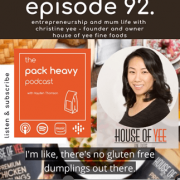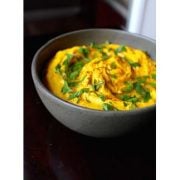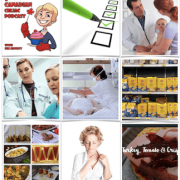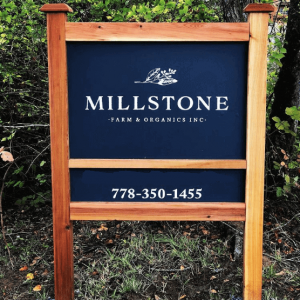What Not to Say to a Celiac!
 When her husband was diagnosed with coeliac disease, writer Maria Lally had to learn how to deal with well meaning comments from friends and family. Here are five things she suggests one should never to say to a celiac.
When her husband was diagnosed with coeliac disease, writer Maria Lally had to learn how to deal with well meaning comments from friends and family. Here are five things she suggests one should never to say to a celiac.
- Maria Lally, telegraph.co.uk 1
1. “I’m sure a little bit won’t hurt…”
“Even miniscule amounts of gluten – a protein found in wheat, barley and rye – from a stray breadcrumb can cause the lining of the small intestine to become damaged, which may lead to other parts of the body becoming affected too,” says Norma McGough from Coeliac UK. “So following an entirely gluten free diet is essential for people with coeliac disease, as is taking sensible steps to avoid cross contamination. This includes keeping cooking utensils separate during food preparation and cooking, using separate grills, pans, toasters and chopping boards, using separate condiments like jam and butter, and washing surfaces frequently and thoroughly.”
At home we dedicated a kitchen cupboard to newly purchased pots, pans and chopping boards that had never seen a drop of gluten, and store all our gluten free foods in there too.
And with good reason: studies show if people with coeliac disease are regularly exposed to gluten their risk of type 1 diabetes, thyroid disease, osteoporosis, small bowel cancer and infertility increases. So yes, a little bit will hurt…
2. “Bread makes me a little bloated too”
Which brings us onto the more immediate effects of ‘being gluten-ed’. “The severity of symptoms experienced by somebody with coeliac disease eating gluten vary,” says Norma. “But they can include diarrhoea, constipation, stomach pains, lethargy, nausea, vomiting, stomach pain and cramping, mouth ulcers, skin rashes and depression. Sufferers can become very unwell after even very small amounts and need time off work or school.
“Coeliac disease is not the same as an allergy to wheat; it’s not a food allergy or intolerance, but rather a serious autoimmune disease where the body’s immune system attacks itself which causes damage to the lining of the gut and means the body is unable to properly absorb nutrients from food.” In other words, it goes far beyond a bit of bloating after a sandwich.
3. “I’m coeliac too, but I cheat at weekends”
“I have a close friend who owns an excellent central London restaurant and they take their food allergies very seriously, as they should,” says nutritional therapist Ian Marber, who was diagnosed with coeliac disease in the early nineties. “But when people insist they can’t eat gluten, but then announce they’re going to ‘cheat’ or ‘treat’ themselves it undermines the seriousness of the illness and confuses people who are serving them food. I have a saying when I’m ordering in restaurants which goes, ‘I’m proper gluten-free, not LA gluten-free.”
“Most restaurants are pretty clued up on coeliac disease these days, but when ordering always tell your waiter you’re ordering gluten-free for medical reasons,” says Norma, who says never be afraid to ask questions about how and where the food is prepared to avoid cross contamination.
4. “Everyone is coeliac these days, aren’t they?”
You’d think so over on Instagram, where you’ll find almost 21 million (and counting) #glutenfree posts, but coeliac disease currently only affects one in 100 people in the UK. “However, under-diagnosis is a big problem and research suggests around 500,000 people in the UK have it but haven’t been diagnosed by their doctor,” says Norma.
However, Ian Marber says it’s important to ensure you’re properly diagnosed by your GP; “When I was first diagnosed, hardly anybody self diagnosed themselves as being unable to eat gluten,” says Ian Marber. “But now I meet people all the time who have cut out gluten without any medical advice or tests whatsoever, and will instead quote some popular wellness blogger.
“Going gluten free is becoming increasingly fashionable for ‘health’ reasons, but undeniably a lot of it is now about weight loss. But cutting out anything will make you lose weight.”
5. “Can I try some?”
With gluten free fare, like beer and pizza, often costing up to twice as much as the standard version, no, you can’t …













